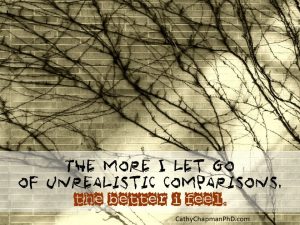As Above, So Below: The Spiritual World Must Be as Intricate as the Physical World
On my Facebook Page I see photos, read amazing stories, learn of various experience upon this earth that I know we live in a beautiful complex world.
Doesn’t that hint at the spiritual world, that world we don’t see, as being equally complex? It does for me.
Return from Tomorrow
I’ve had a fascination with near death experiences. A few decades ago, when Raymond Moody’s books came out, I slurped them up avidly.
I wanted to know what people saw on “the other side.”
As I was exploring, I found the book Return from Tomorrow. There were several things in this particular book which fascinated me.
You Can Be So Focused on This World You Don’t Go to the Next
When Ritchie was “traveling” after his clinical death, he observed a wealth of life among those who had died. I realize that sounds strange. He saw people acting just like they would if they were on earth. There were multitudes of people completely unaware they were dead.
One guy was talking on an “old timey” phone from the 1920s in the same office his son was speaking on a slick new phone (of the 1940s). The guy was physically dead but he didn’t know it. His life on earth had been centered around work and, when everyone else knew he was dead, he continued working totally unaware of being dead.
That sounds strange, even ridiculous, but I have some fascinating stories I’ll need to share in another post about my experiences in this area.
How He Could Tell Who Was Physically Alive and Who Wasn’t
Ritchie began to notice that certain people had light around them. I thought this meant they were alive. He then said this light was the light of God with them attempting to guide people “home.”
I was touched deeply by Ritchie’s experience that God never gave up on us, not even after death. God was attempting to penetrated the stubbornness of feelings and beliefs of those who were either too terrified to come “home” or who held onto old beliefs so tenaciously they couldn’t see the truth of Love.
There Were People Who Invented
He saw an amazing image of people working on what he recognized was a submarine. It was only some years later when a new advanced submarine was loudly proclaimed in the news that he realized he had seen that submarine being developed “on the other side.” I was delighted by the affirmation there were many different activities we could participate in once we left our physical bodies.
I was delighted by the affirmation there were many different activities we could participate in once we left our physical bodies.
As Above So Below
The saying, “As Above So Below” has been known at least since the 6th Century. Some saw it goes back to ancient Greece.
Isaac Newton’s translation of the relevant passage is:
Tis true without error, certain & most true.
That which is below is like that which is above & that which is above is like that which is below to do the miracles of one only thing.
Having heard “As Above So Below” for decades and coupling it with Ritchie’s experience while he was clinically dead, I considered my experiences in my spiritual life.
Growing Up Catholic
 One advantage of Catholicism is that we believe there are those who assist us spiritually other than Jesus and other “aspects” (in quotes because they don’t use that term) of God. From what I know of Protestantism, their belief is only in God as in Father, Son and Holy Spirit.
One advantage of Catholicism is that we believe there are those who assist us spiritually other than Jesus and other “aspects” (in quotes because they don’t use that term) of God. From what I know of Protestantism, their belief is only in God as in Father, Son and Holy Spirit.
Catholics have a wide range of saints and angels we’ve been taught to ask for assistance. No, not worship. Ask for assistance.
Having scooted over in my desk when I was in First Grade to make room for my Guardian Angel, I was well acquainted with asking for assistance.
The New Age or Metaphysical World
When I delved into the New Age world, I became acquainted with more spiritual beings who assisted me. Yes, there were angels. I also became aware there were more than angels. We didn’t stop being of service to others just because we physically died. We still served. We helped. We gave assistance. Some were inventors like those folks Ritchie saw. Others imparted wisdom.
There are even those who literally intervened when no one was around to miraculously keep me from killing myself due to the way I was driving. Those are fascinating stories.
Your Healing Team and My Healing Guides
As you know, I work with facilitating healing in others. I did so as a therapist. I continue to do so as a Life Coach and energy based healing facilitator. I love what I do. I don’t do this alone.
Yes, of course, the person I’m working with is fully involved.
I also have a spiritual support team who guides and directs me in what I do. I call they my Healing Guides. Each client (including myself) has their own spiritual support team who assists them in healing and balancing. Their Healing Team and my Healing Guides work together intimately.
I receive intuitive messages about where I need to focus and what I need to do to assist the person I’m working with. Sometimes, like yesterday, I discover new and amazing things about the human energy field. In this instance I learn about an energy channel which flows from the pranic tube into the chakra and around each of the layers of the chakra.
Wow! Awesome! How amazing and complex is this spiritual world of ours!
If you haven’t considered the spiritual world populated with people having as diverse “jobs” as you find here on Earth, think about it. At least put it in the realm of possibility.
If you want to read about Ritchie’s experience, click on the image and you’ll be taken to Amazon. It is my affiliate link so I’ll receive a few pennies if you purchase the book and anything else you purchase while there.
If you’d like to make an appointment to explore your spiritual support team, you may make an appointment by going ->>>> here <<<<<<- This will take you to my appointment calendar.
Get in touch with your spiritual support team. They will enrich your life.









 Most people think of creativity associated with art, as in the photo above. This elicits the comments, “Oh, I’m not creative. I can’t draw.”
Most people think of creativity associated with art, as in the photo above. This elicits the comments, “Oh, I’m not creative. I can’t draw.”




 It’s time to take control of your life and bring more joy into your every day existence. You have more power than you think! Your can make major changes in your life by taking action to change what is happening in your mind.
It’s time to take control of your life and bring more joy into your every day existence. You have more power than you think! Your can make major changes in your life by taking action to change what is happening in your mind. it. This hasn’t gotten you anywhere, let’s try something new.” Have what I call a file cabinet in your mind. Form a visual image of a file cabinet. Think of something wonderful, a happy memory, and see yourself put it in the file cabinet. When you catch yourself in negative thinking, stop, go to the file cabinet and pull out the memory.
it. This hasn’t gotten you anywhere, let’s try something new.” Have what I call a file cabinet in your mind. Form a visual image of a file cabinet. Think of something wonderful, a happy memory, and see yourself put it in the file cabinet. When you catch yourself in negative thinking, stop, go to the file cabinet and pull out the memory.

